Otho Shealy ’48 Shares His Part in College — & World — History
by Jay Salter '19 | External Communications Coordinator - November 21, 2023
by Jay Salter '19 | External Communications Coordinator - November 21, 2023
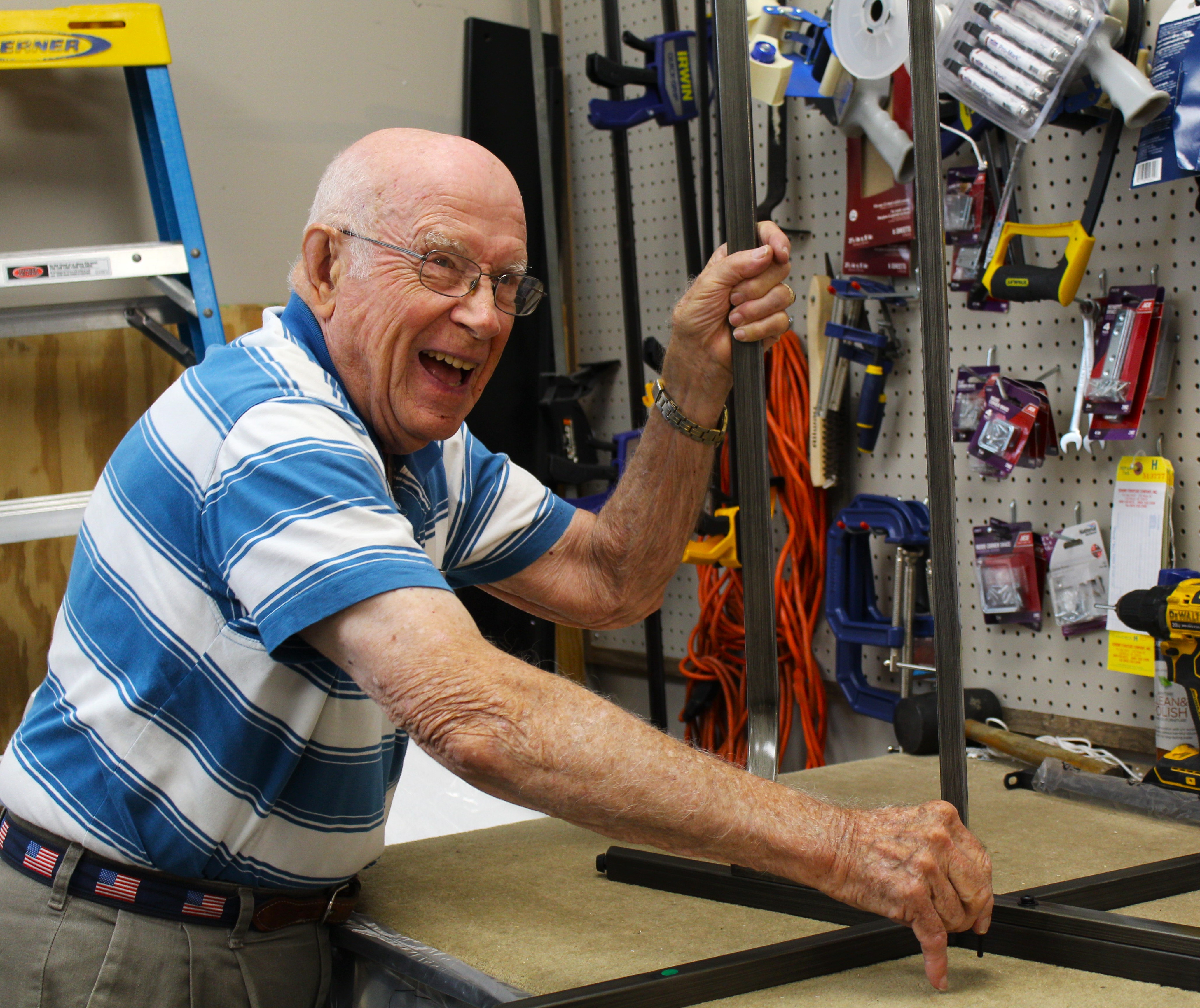
BATESBURG-LEESVILLE, S.C. — Throughout his 97 years, Otho L. Shealy ’48 has played parts in both local and world history. His life’s journey has taken him around the world, from his home in Batesburg-Leesville, South Carolina, to Newberry College, to scorched cityscapes of postwar Europe, and back.
Last summer, he came across his ticket to the world’s first experiment in international criminal law, the 1946 Nuremberg Trials, which he was able to attend while stationed there as a medic immediately following World War II. He donated the pass to the South Carolina Military Museum in Columbia, where, opposite Great War gas masks and an M48 Patton main battle tank, it represents a path to peace.
The discovery gave us a chance to catch up with Shealy at his family’s business, Economy Furniture Co., where he happily reports to work five days a week.
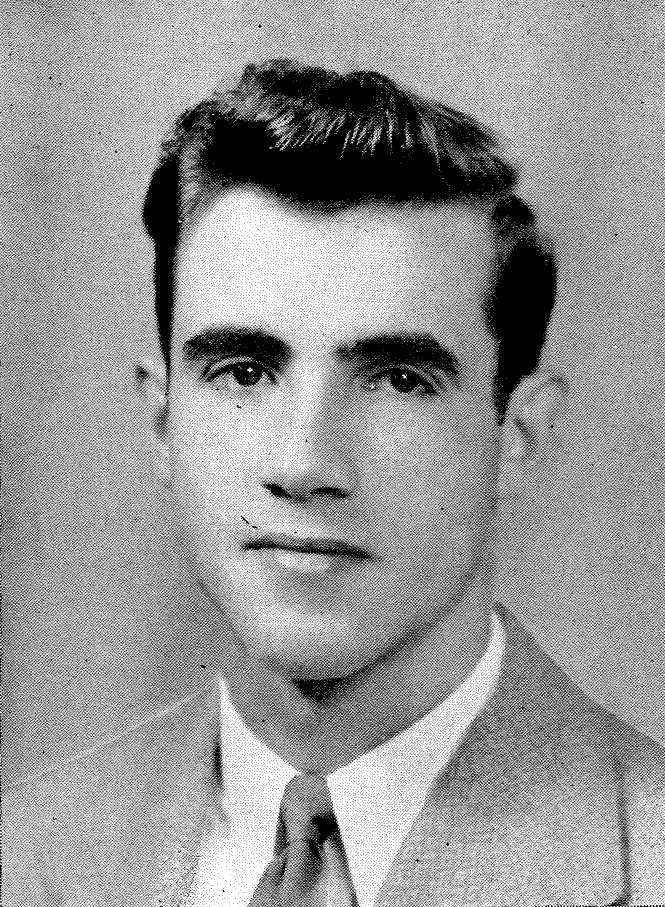 When Shealy (right) arrived on the Newberry College campus, fresh out of high school on the eve of summer 1943, he was the youngest of just 31 men enrolled. At the height of the Second World War, most college-age men and even some professors were spending their semesters across opposing seas or marking time somewhere in between. For Shealy, weeks away from his 17th birthday, age wasn’t just a number. It was the only thing standing between him and the arms to which conscience and country called. He looked forward to becoming a pilot in the Air Corps — the branch known as the Air Force didn’t exist until 1947.
When Shealy (right) arrived on the Newberry College campus, fresh out of high school on the eve of summer 1943, he was the youngest of just 31 men enrolled. At the height of the Second World War, most college-age men and even some professors were spending their semesters across opposing seas or marking time somewhere in between. For Shealy, weeks away from his 17th birthday, age wasn’t just a number. It was the only thing standing between him and the arms to which conscience and country called. He looked forward to becoming a pilot in the Air Corps — the branch known as the Air Force didn’t exist until 1947.
Weeks after he enrolled, on July 31, Newberry life was drummed to a whole new cadence. Three hundred twenty-five cadets in the U.S. Navy’s V-12 program, designed to supplement the supply of trained officers, took up residence on campus. The College provided the facilities and academic training, while the Navy handled discipline, physical fitness and military drill. Cadets came from among college students, various reserve programs, enlisted men from the fleet, and high school seniors who passed the nationwide qualifying examination. Newberry — one of two South Carolina colleges and 131 campuses nationwide to host V-12 — educated over 1,000 cadets in its 27 months of participation.
“The boys that were there when I first went there that summer were probably gone the next year,” says Shealy. “I didn’t think about it, then, being such a serious time. We were playboys. We were ready to shoot more pool and play more cards. And just wait till tomorrow, I’m gonna get my notice that I’m supposed to report for service.”
During his first year-and-a-half at Newberry, Shealy studied math & natural sciences, as it was known then, a versatile major encompassing mathematics, biology and chemistry. “I can’t say that I was going to be a doctor,” he says. “But I always liked the sciences.”
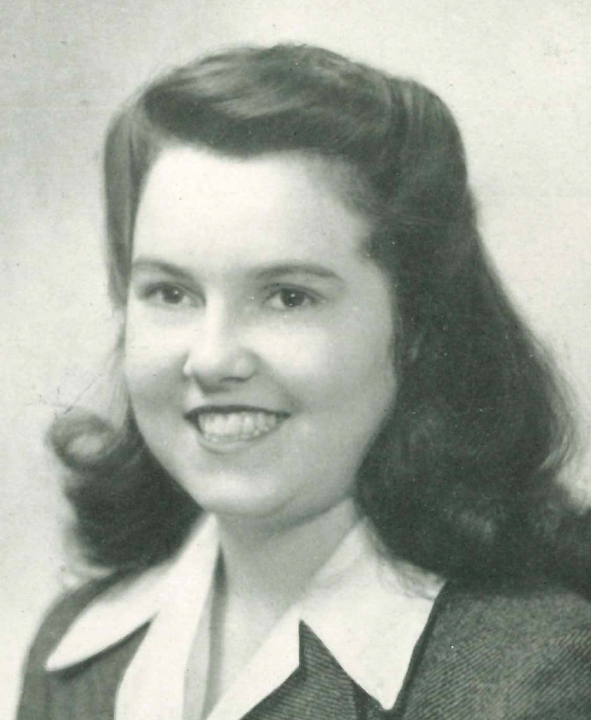 During his sophomore year, he crossed paths with a two-year business student from Savannah named Mary Reiser (1927-2020). Dark-haired, dimpled and outgoing, she was a leader among her classmates — president of the business students, secretary of the Y.W.C.A., and a member of the Newberry Players. “She got my attention,” he says.
During his sophomore year, he crossed paths with a two-year business student from Savannah named Mary Reiser (1927-2020). Dark-haired, dimpled and outgoing, she was a leader among her classmates — president of the business students, secretary of the Y.W.C.A., and a member of the Newberry Players. “She got my attention,” he says.
Unfortunately, their relationship didn’t have long to bloom before Shealy’s number came up in December 1944, just as the Battle of the Bulge was taking shape in western Europe. Before he left Newberry, the pair promised to write each other. He was inducted into the Air Corps in January, and was sent promptly to Biloxi, Mississippi, for basic training, and from there to B-29 gunnery school in Florida. By this time, however, Germany had surrendered, and all eyes were on the war in the Pacific.
“In Florida, I understood that we had around 15,000 cadets that were being prepared in some way. We had been told, before they dropped the A-bomb, that we would be going to Nebraska, and then would be assigned to a B-29 that would go to the south Pacific. So we were that close,” he says.
Luckily, Japan surrendered weeks later on Aug. 15. As the theaters of action fell quiet, Shealy and his compatriots were “bounced around” as the United States determined its next moves in a postwar world. After serving and training at various stateside bases, he boarded the Pontotoc Victory in January 1946 to assume his new post among the Allies occupying Nuremberg, Germany.
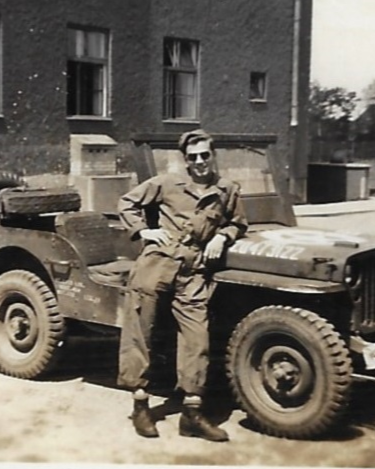 When Shealy arrived, the city, like many others in Germany at the end of the war, was a skeleton of its former self. “Many of the little villages that the train would go through, you could never tell a war was there. But anywhere that was of much size, there had been nothing done. Inside the walled city was known then as 95% destroyed,” he says. “The whole year, I didn’t see any work going on to rebuild.”
When Shealy arrived, the city, like many others in Germany at the end of the war, was a skeleton of its former self. “Many of the little villages that the train would go through, you could never tell a war was there. But anywhere that was of much size, there had been nothing done. Inside the walled city was known then as 95% destroyed,” he says. “The whole year, I didn’t see any work going on to rebuild.”
Thanks to his math & natural science coursework at Newberry, Shealy was assigned to a medical unit. “I didn’t ask for it, but that became a real blessing. First, I could drive almost anything. I had driven everything when I was [at home], and back then it was all straight shifts. The ambulance was a good fit for me.
“We had a place that a patient could lie down to be examined, but nothing much more than that. I remember Dr. Floyd, and we acted as his nurses. Giving shots was one of the biggest things. I can just see them right on today, lines of GIs there for their different kinds of shots. What meant more to me was taking patients to the hospital in Nuremberg. I think about some of them that I carried there.”
Throughout his assignment in Nuremberg, the International Military Tribunal was underway. In what became known as the Nuremberg Trials, the Allied coalition of the United States, the United Kingdom, France and the Soviet Union tried two dozen surviving leaders of Nazi Germany. The charges included crimes against peace, crimes against humanity, war crimes, and conspiracy. Shealy was able to obtain a pass to attend a session of the trial.
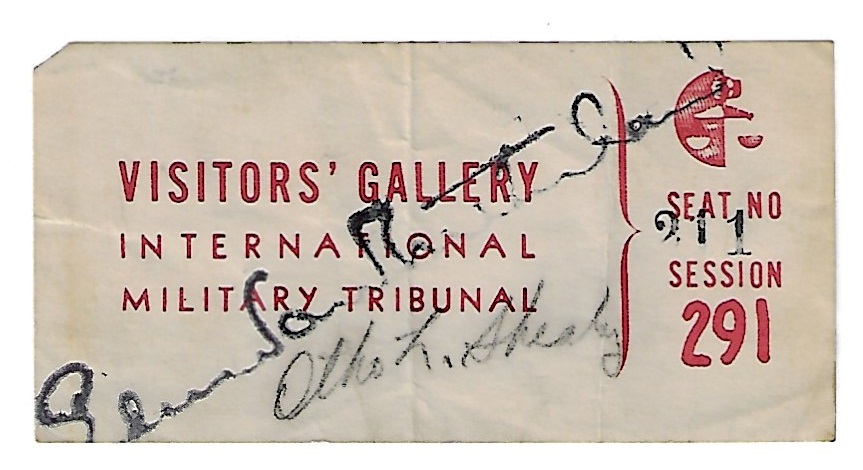 “In your seat, you put your headphones on, and you could dial it to English and hear what was being said, because it was all done in German. I can still see the Germans seated on two rows. I can still see the guards standing behind them. I don’t remember any one of the prisoners saying anything. At the time, it was like just another day,” he says.
“In your seat, you put your headphones on, and you could dial it to English and hear what was being said, because it was all done in German. I can still see the Germans seated on two rows. I can still see the guards standing behind them. I don’t remember any one of the prisoners saying anything. At the time, it was like just another day,” he says.
Shortly after the trial ended and sentences were handed down, on Oct. 16, 1946, the day 10 of the Nazi defendants were to be executed, Shealy was shipped out. Back in the States, during his stay at Camp Kilmer, in New Jersey, Shealy remembers taking a detour to the City That Never Sleeps. “We’d heard some of the radio stuff from New York City, so several of us got a cab to take us from Camp Kilmer to New York and put us out. We went to NBC, we went to the Chesterfield hour, and there was the first TV I ever saw.”
After he was discharged and spent Christmas at home in Leesville, he picked up his college career where he left off two years before.
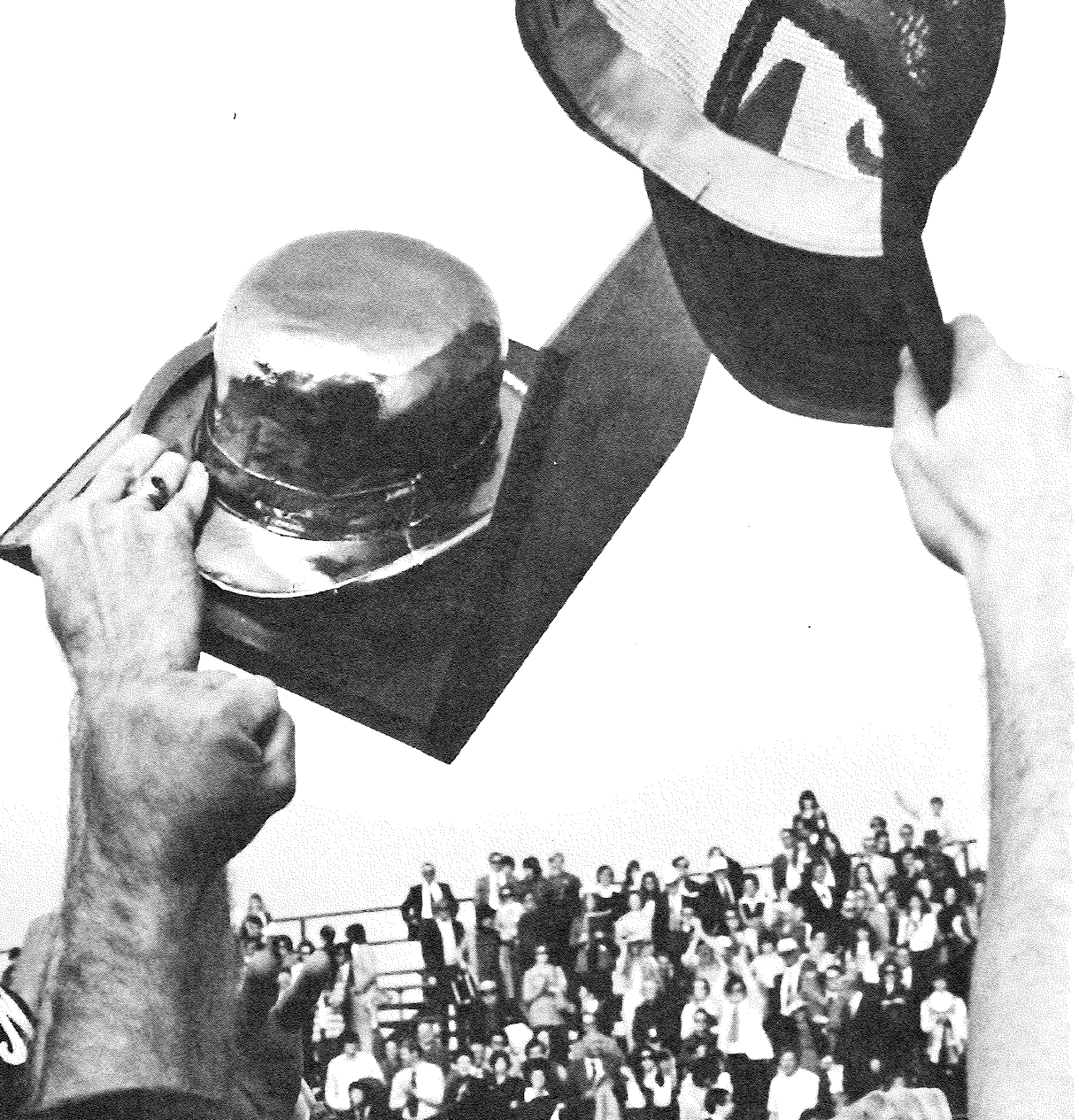 Within a few weeks of his return to Newberry, he found himself a player in what would become local lore. According to the late College archivist Gordon Henry (1931-2020), on Jan. 31, 1947, Newberry played rival Presbyterian College in basketball, in what would later be named MacLean Gymnasium. Legend has it that a Newberry student climbed a ladder on the outside of the building, into an open window behind the visitors’ stands, and took a bowler hat off the head of a Blue Hose. Former student Corrin Bowers would later write that the hat was originally his, and that the whole operation was merely to recover stolen property.
Within a few weeks of his return to Newberry, he found himself a player in what would become local lore. According to the late College archivist Gordon Henry (1931-2020), on Jan. 31, 1947, Newberry played rival Presbyterian College in basketball, in what would later be named MacLean Gymnasium. Legend has it that a Newberry student climbed a ladder on the outside of the building, into an open window behind the visitors’ stands, and took a bowler hat off the head of a Blue Hose. Former student Corrin Bowers would later write that the hat was originally his, and that the whole operation was merely to recover stolen property.
“You know who helped hold the ladder?” Shealy asks. “You’re looking at him! This fellow with this hat on, he was making a lot of noise. We lifted the hat out the window and I didn’t know where it went to.”
Several altercations ensued after the game. Soon after, Presbyterian’s public relations director, Charles MacDonald, wrote Frank Kinard ’47 (1924-2021), Newberry’s sports publicity director, suggesting that the hat be recovered and made into a symbol of the schools’ rivalry. The hat was turned in anonymously, cast in bronze, and the Bronze Derby was born. The trophy would be passed to the victor of each meeting in basketball, baseball and football until 1956, and only in football until 2006, just before PC left Division II. Photo from the 1974 "Newberrian."
After settling back into student life, Shealy joined the College Singers, where he sharpened his vocal skills and connected with the director, fellow veteran Dr. Milton Moore (1914-94). Moore left Newberry to serve in the U.S. Army, where he served in north Africa and in Italy. “We probably spent half of our time together talking about our experiences in the service,” he says.
Shealy graduated in spring 1948, and took a position in Savannah as a chemist for Southern Cotton Oil Co. However, he admits he moved to Savannah for a different kind of chemistry. “Mary was working as a secretary for a building and loan place. She lived around the corner,” he says.
Their relationship budded in letters from across the sea. Now that they were reunited, it wasn’t long before wedding bells echoed from the church steeple. Their marriage would thrive for 71 years.
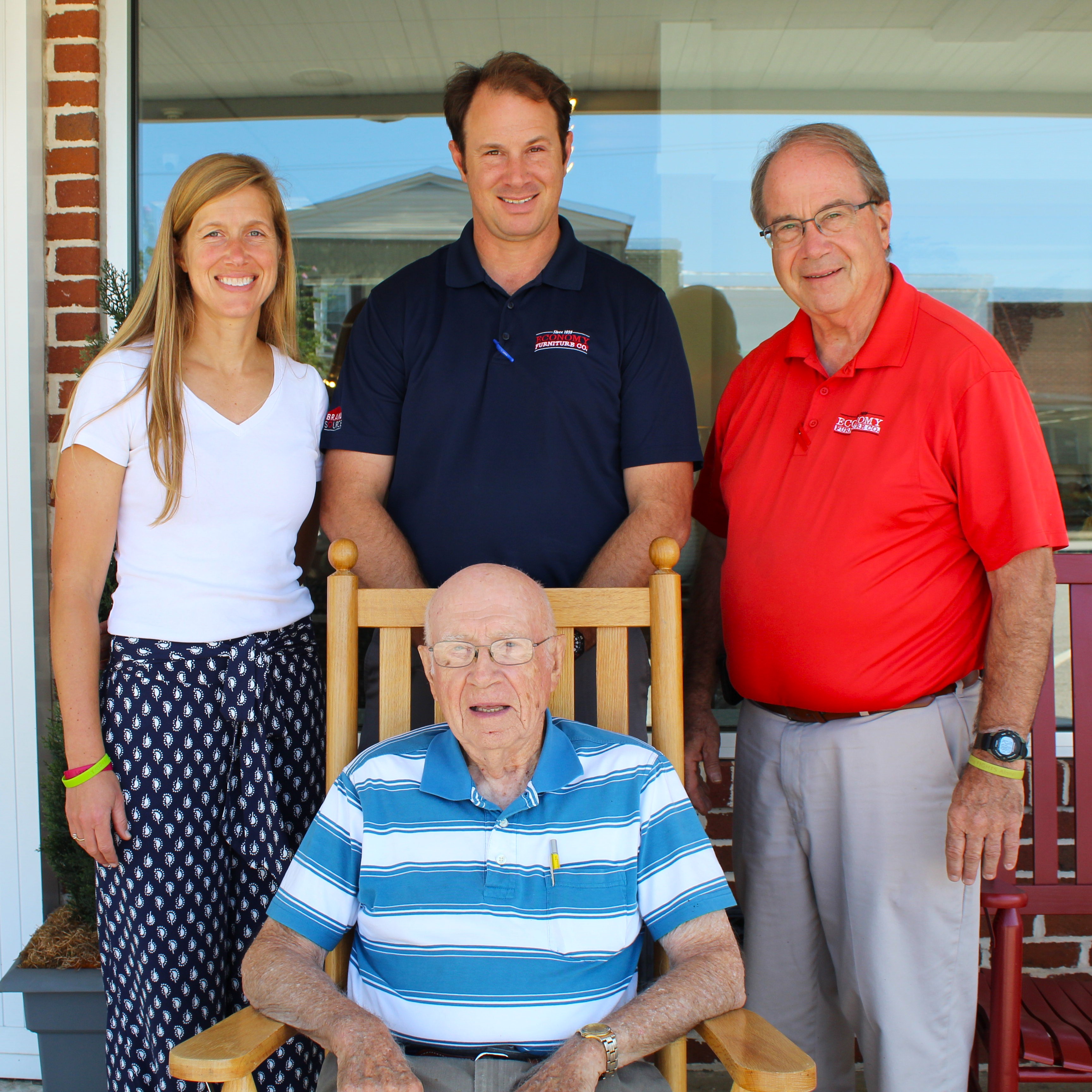 “In the meantime, my daddy offered me a job at the store with him, and he’d pay me the same thing I was getting paid down there, which was $200 a month. That was pretty good pay back at that time,” he says.
“In the meantime, my daddy offered me a job at the store with him, and he’d pay me the same thing I was getting paid down there, which was $200 a month. That was pretty good pay back at that time,” he says.
Since then, Shealy has worked alongside his family for most of the 84 years that Economy Furniture has been in business. It also happens that these three generations of Shealys are also Newberry College graduates, including (in photo order) Betsy Shealy Dority ’06, Brian Shealy ’04, and Brent Shealy ’77. At 97, Otho Shealy (seated) has no plans to retire, instead hoping to continue the work he enjoys for as long as he can. He has not only more stories to tell, but more to write.